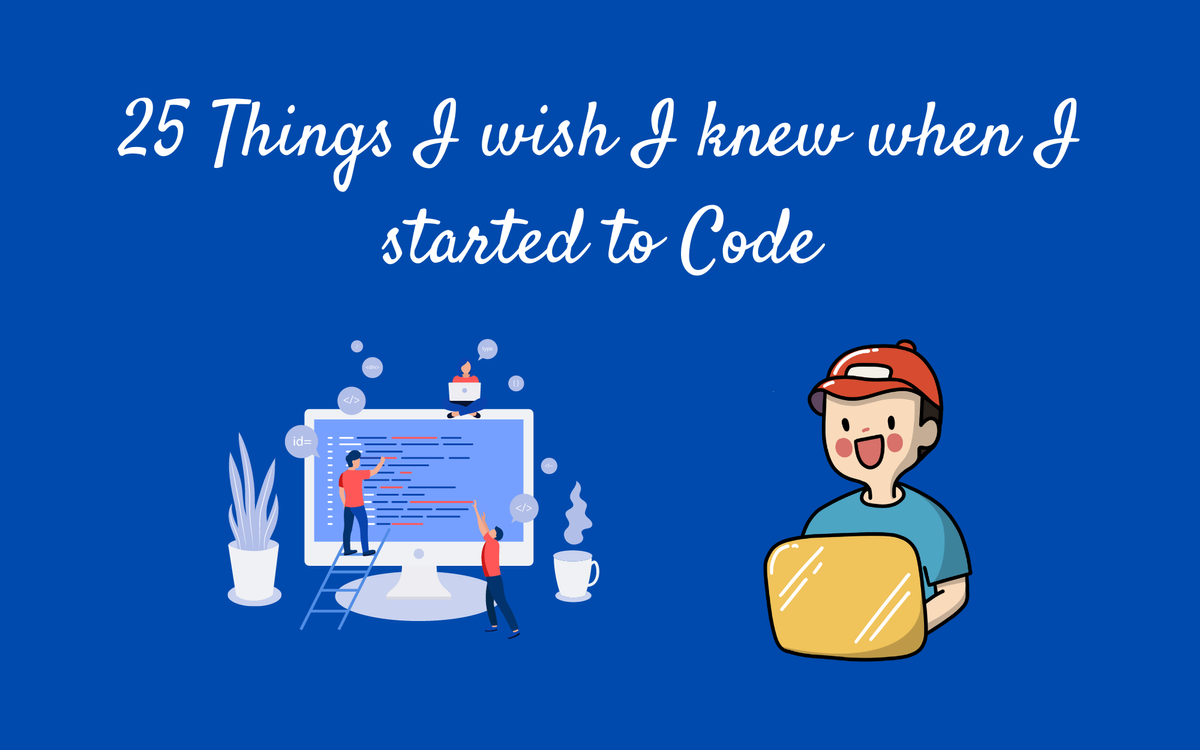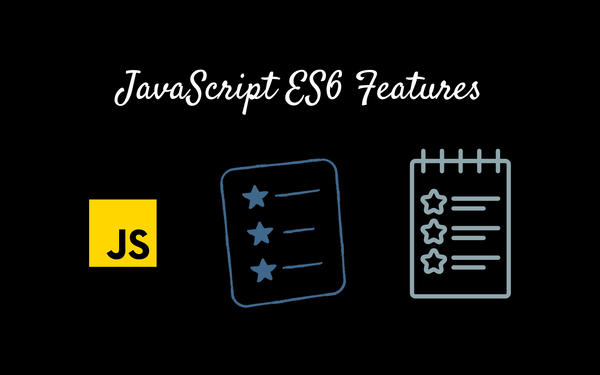25 Things I wish I knew when I started to Code

Here are 25 pieces of advice that many experienced developers often wish they knew when they first started coding:
- It's Okay to Ask for Help: Don't be afraid to ask questions or seek help from more experienced developers or online communities.
- Practice Consistently: Regular practice is key to becoming a proficient coder. Set aside dedicated time for coding.
- Understand the Basics Well: Focus on mastering the fundamentals of programming languages, data structures, and algorithms.
- Learn to Read Code: Reading and understanding code written by others is just as important as writing your own.
- Version Control is Crucial: Learn how to use version control systems like Git. It helps manage code changes and collaboration.
- Debugging is a Skill: Debugging is a big part of coding. Practice debugging techniques and become familiar with your development environment's debugging tools.
- Write Clean Code: Prioritize readability and maintainability. Clean code is easier to understand and debug.
- Documentation Matters: Write clear comments and documentation to explain your code. It helps others (and your future self) understand your work.
- Learn to Google Effectively: Knowing how to search for solutions and documentation is a valuable skill in coding.
- Don't Fear Failure: Embrace mistakes and failures as learning opportunities. They're an integral part of the learning process.
- Stay Curious and Keep Learning: Technology evolves rapidly, so staying curious and continuously learning is essential.
- Understand Data Structures and Algorithms: Having a strong foundation in data structures and algorithms is crucial for solving complex problems efficiently.
- Test Your Code: Write tests to verify that your code works as expected. Automated testing can save you a lot of time in the long run.
- Learn to Read and Write Pseudocode: Pseudocode is a valuable tool for planning and understanding algorithms.
- Take Breaks and Avoid Burnout: It's important to take breaks to avoid burnout. Regular breaks can actually improve productivity.
- Explore Different Tools and Libraries: Don't limit yourself to one language or framework. Explore different technologies to broaden your skill set.
- Join a Coding Community: Participate in online forums, meetups, or coding groups. It's a great way to learn, ask questions, and network.
- Learn about Design Patterns: Understanding design patterns can help you write more efficient and maintainable code.
- Security Awareness: Learn about common security vulnerabilities and how to protect your code from attacks.
- Focus on Problem Solving: Coding is about solving problems. Practice breaking down complex problems into smaller, manageable tasks.
- Stay Organized: Keep your codebase organized, use meaningful names for variables and functions, and follow consistent coding conventions.
- Master the Command Line: Understanding and using the command line interface can significantly boost your productivity.
- Stay Humble and Open-minded: Technology is vast, and there's always something new to learn. Stay open to new ideas and approaches.
- Build Projects and Apply What You Learn: Building projects is one of the best ways to solidify your learning and showcase your skills.
- Have Fun and Enjoy the Journey: Coding can be challenging, but it's also incredibly rewarding. Enjoy the process of creating and problem-solving.
Remember, every developer's journey is unique, so don't be discouraged by challenges or compare yourself to others. Keep learning and growing at your own pace.




